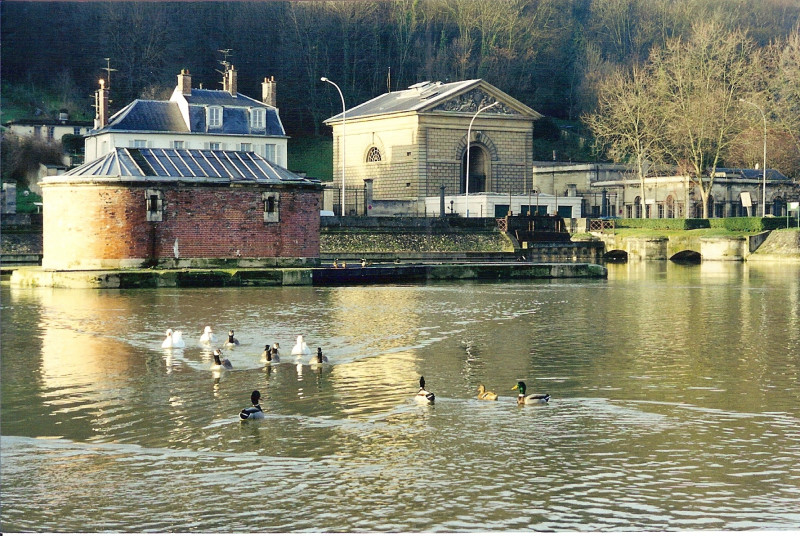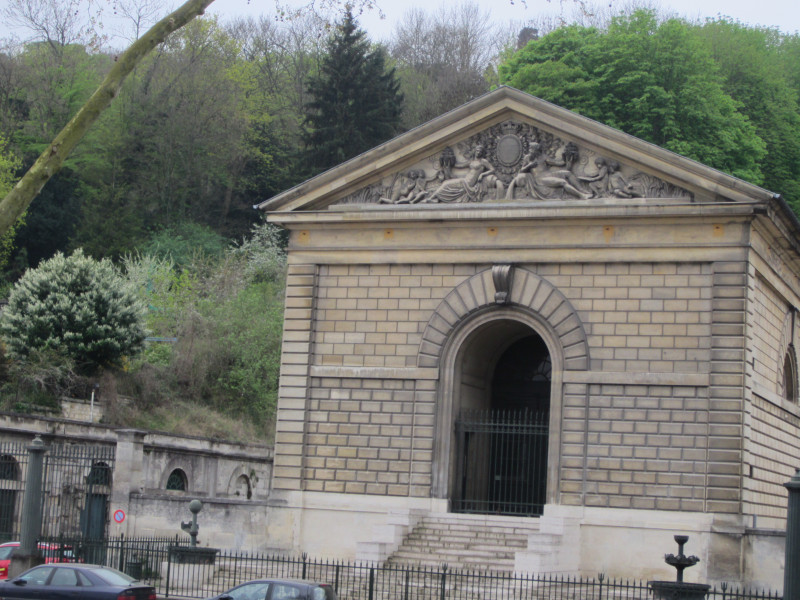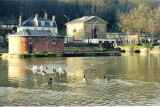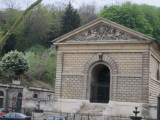The Machine de Marly, which is in fact situated in Bougival, was the first link in a range of machinery for bringing water from the Seine to Versailles to deliver water to the many ornamental lakes and fountains in the gardens of Versailles and Marly.
Water was transported 163 metres above the level of the Seine by a series of three ascents [2 intermediary holding tanks at +48 m and at +99 m] to the Marly reservoir, which was 33 m above Versailles.
The flow rate was 1800 to 1500 m3/day. Powered by the Seine’s current, 14 large cogwheels turned a number of force pumps.
This height difference was exceptional for the period. The leather used on the pistons would not have resisted a pressure of 15 bar, which led to the idea of having 3 levels of 50 m. Of course, an icebreaker and a rake were needed upstream to prevent damage to the wheel blades.
This huge piece of machinery, designed by Rennequin Sualem from Liège, was composed of 14 hydraulic wheels of 12 m in diameter installed on the Seine. These wheels powered 221 suction and pressure pumps (64 at the bottom, + 30 and 49 at the first holding tank, + 78 at the second, all powered by a balance wheel using energy from the 14 wheels in the Seine). Building work, which began in 1681,was completed on 16 June 1684. The machine was inaugurated by King Louis XIV. Unfortunately, the machine was not only noisy and expensive but, being made of 90% wood, it deteriorated.
Around 1800 any idea of repairing it was abandoned and the machine was finally demolished in 1817. It was then replaced by a steam engine, built by the architect Cécile and the engineer Martin. However, operating costs were still too high. The machine was changed again in 1859. This third machine, which was hydraulic, was designed by Xavier Dufrayer, the Director of the Water Department. To cope with increasing water requirements, the Dufrayer machine was modernised but in 1968 it was dismounted completely to be replaced by increasingly powerful motorised pumping units, in use until the present day.
Today, only a few buildings remain including the Charles X block for pumping, a small edifice in the middle of the Seine and some housing.
For groups, we offer a thematic guided tour of the remains of the Machine. Discover our offer!




